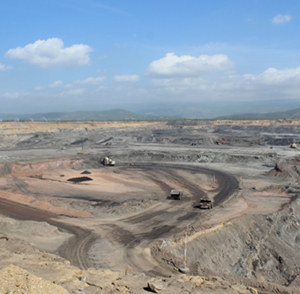
In late June the Supreme Court of the United States set American women and, with them, American democracy back a generation. In a ruling now known as “Dobbs,” the court overruled Roe vs Wade, the 50-year-old legal precedent that established the legal right to abortion. Some states moved quickly to enact complete bans.
We usually talk about the overturn of Roe in terms of what it takes away: privacy and the right to determine what happens to your body. But it also confers rights, and creates dangerous and perverse incentives. It gives government the right to seize your body by claiming it is protecting a person, framing a foetus as a fully-fledged human temporarily resident in another. It also gives government the right to coerce doctors to act on your body against your will, forcing you to carry an unwanted pregnancy, even if that pregnancy threatens your health and life.
In some places, the Roe decision actually incentivises citizens to spy on and report on people. Last year, Texas began to offer cash bounties to those who report or sue doctors, nurses or clinics that help a women get an abortion. The Fugitive Slave Act, which also encouraged citizens to act as bounty hunters, is a disturbing historical precedent. Other states may now follow suit.
The rolling back of abortion rights makes pregnancy itself a death sentence for some women. Experts warn that women with ectopic pregnancies, if denied abortion, may face deadly sepsis, while cancer patients may have their treatments stopped because of the risk to the foetus.
Women in the United States now live in a liminal state of vigilance and probation. The argument is often made that a woman in need of an abortion can travel to a sanctuary state. But not everyone has the money or time or freedom to travel. And bans generate difficult everyday decisions.
What happens, for example, if a pregnant woman travelling for work or to visit family in a state that bans abortion has a miscarriage that authorities decide is suspicious? What if that miscarriage is life-threatening and she is unable to choose her own life? If she refuses to go in the first place, will she lose her job? In states where abortion is banned, every fertile girl, woman, or birthing person is a body understood to be a potential crime scene.
It’s important to note the relationship between the criminalisation of pregnancy outcomes and incarceration in the United States. Even while Roe stood, women – particularly impoverished, immigrant, Black and Brown women – were persecuted, arrested or jailed for abortions and miscarriages.
Notable cases include Purvi Patel, sentenced to 20 years in prison for a self-managed abortion; Regina McKnight, charged with murder after a stillbirth and sentenced to 15 years; Bei Bei Shuai, charged with murder after her attempted suicide resulted in a miscarriage; Maria Guerra, charged with child endangerment after a car crash; Rennie Gibbs, a Mississippi teen who faced life in prison for drug use during her pregnancy.
Now that Roe no longer stands, the broad-ranging nature of many states’ abortion bans is likely to result in many more such cases.
Forcing people to bear unwanted pregnancies and criminalising abortion creates a hostile, insecure and unsafe world for girls, women and birthing people. Navigating this world alters how we see ourselves, how we perceive life’s possibilities and how we act, despite our own desires or will. Gone is the sense of self that resides in knowing that you can make decisions about your own health, education, work, relationships and long-term well-being.
The overruling of Roe vs Wade, and the composition of the Supreme Court, is the successful result of a 50-year strategy by Christian conservatives (state legislatures remain stunningly white, male and Christian.) Taking abortion rights away is the linchpin of a broader political movement that includes escalating white supremacist and xenophobic terror, the persistent narrowing of voting rights, an assault on public education, and virulent homophobia and transphobia.
Abortion rights should not be contingent on how much the person seeking to exercise them suffers. They should not be a matter of public opinion or politically institutionalised religious belief. It is no one else’s business why a person needs or wants to end a pregnancy. It is a human right. Denying access to safe and legal abortion is intrinsically anti-democratic, violently oppressive and denigrates us all.
This piece is from the New Humanist autumn 2022 edition. Subscribe here.

